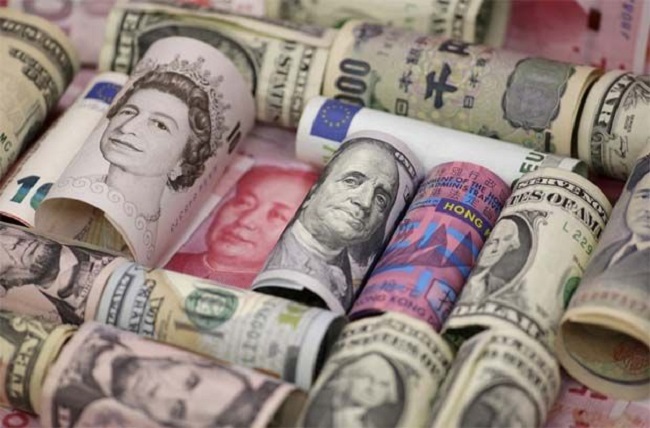On Wednesday, the dollar gained ground thanks to encouraging private sector job figures from the United States, while the euro retreated on reports that deflation had set in across the Eurozone.
The dollar’s continued increase helped it achieve a net gain of 0.80% in the third quarter, making this the fourth consecutive quarter in which the greenback rose against the other major currencies.

The Fed Wants to Keep The Dollar At 0.80 Euros Per Dollar. If The Demand For Dollars Increases
According to the ADP National Employment Report, private U.S. firms added 200,000 positions in September. It was better than expected, and it suggested that the Federal Reserve may decide to boost interest rates later this year.
The dollar index.DXY, which gauges the greenback’s strength versus other major currencies, rose 0.45 percent on Wednesday as a result of the news. It has been on the upswing since the middle of 2014, thanks to the relatively robust economy and high interest rates in the United States.
The dollar increased 0.20 percent versus the yen JPY= to just under 120 yen, held its ground against the Swiss franc CHF=, and dipped slightly against the British pound GBP= as Wall Street registered gains of 1 percent or more and U.S. Treasury yields surged.
After the release of the eurozone inflation report, the value of the euro dropped against the dollar by 0.75 percent to $1.1166 EUR= and against the British pound by 0.5 percent to EURGBP=D4.
After increasing by the same margin the previous month, prices across the Eurozone declined by 0.1% year-over-year in September, according to ECONEZ. The drop was less than anticipated and continues to be significantly below the European Central Bank’s target rate of slightly under 2%.
Since the US is planning to raise interest rates, the data fueled speculation that the ECB could increase or prolong its cheap-money asset purchases.
Traders say a protracted drop below zero might deepen policymakers’ anxieties about the higher euro’s influence on financial conditions, despite the ECB’s focus on inflation expectations and its propensity to look through decreases in the headline rate.
Last Words
Traders have speculated that the tone for the dollar will be set by the U.S. non-farm payroll figures due on Friday, which could either boost or weaken the case for a lift-off in U.S. interest rates in 2015.
At a meeting for bankers on Wednesday, Fed Chair Janet Yellen spoke, although she refrained from discussing policy issues like interest rates.
















